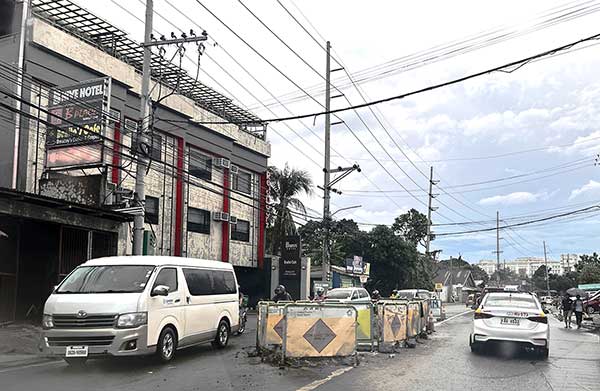
By Joseph Bernard A. Marzan
Metro Pacific Iloilo Water (MPIW) is set to establish a desalination plant in the coastal area of Ingore village, La Paz district, aimed at mitigating the long-standing water shortages in Iloilo City.
This development was highlighted by MPIW’s Chief Operating Officer, Angelo David Berba, during an interview on Daily Guardian on Air on Friday, June 14.
Berba emphasized the significance of this project, particularly for Iloilo City, which has been severely affected by water shortages, especially during heatwaves.
“During the El Niño season, we went down up to 53 million liters per day (MLD). We lost 20 MLD, and unfortunately, Iloilo City is at the end of our distribution system, so when there is a reduction of 10 MLD, it is the most felt in Iloilo City,” he said.
Currently, MPIW sources its water from Metro Iloilo Bulk Water (MIBW) and FLO Water Resources, Inc. (FWRI).
MIBW supplies 40 to 50 MLD while FWRI covers the remainder.
The new desalination plant aims to add 50 to 60 MLD, leveraging advanced technology to convert salt water from the Iloilo Strait into potable water.
Berba noted the strategic location of the plant within the city limits, ensuring a more direct and efficient supply.
“What is good with this desalination [plant] is that it is located within the southern part, in Iloilo City itself, at Barangay Ingore. Right now, the supply source is from Maasin, which is in the far north, while that of [FWRI] is in the northeast, so the flow going to Iloilo City is already used up by consumers, as we have seen in Pavia, where there has been commercial growth left and right,” he said.
“When [the supply] gets to Iloilo City, it’s already decreased. The good thing about this desalination [plant] is that the injection point is already in the city, [with] 50 [MLD], enough to satisfy the current demand or current customers of MPIW,” he added.
The project will utilize a costly process involving pre-treatment and reverse osmosis, which Berba described as essential for making seawater safe for domestic use.
“Imagine removing salt from the water. There will be pre-treatment [and] reverse osmosis. It requires a lot of power to enter the [water] membrane, extracting [salt] atoms. Filtering out the salt is needed before it becomes potable water,” he explained.
To mitigate the cost, MPIW will be blending its sources to include cheaper ones to reduce the overall rates for costumers.
The desalination plant will be powered by a ₱2.3-billion Integrated Solid Waste Management Facility (ISWMF) waste-to-energy project, developed in collaboration with Metro Pacific Water Investments Corp. and MetPower Venture Partners Holdings, Inc.
Apart from the desalination plant, MPIW has set other goals, including recovering 10 to 15 MLD of non-revenue water (NRW) in the short term.
Since its inception in 2019, MPIW has increased its water service connections by 8,000, addressed up to 10,000 leaks annually, and reduced NRW from 56 percent to between 43 and 36 percent as of May 2024.
To further enhance water distribution, MPIW is undertaking seven pipe replacement projects, replacing old galvanized and cast iron tubing with High-Density Polyethylene (HDPE) or Polyvinyl chloride (PVC) pipes.
MPIW, a joint venture between the Metro Iloilo Water District (MIWD) and Metro Pacific Water, serves Iloilo City and nearby towns including Oton, Sta. Barbara, Cabatuan, Maasin, San Miguel, Pavia, and Leganes.
The company took over operations from MIWD on July 1, 2019, following their joint venture agreement in November 2018.
MIWD General Manager Alfredo Tayo III recently affirmed MPIW’s substantial compliance with their contractual obligations.





















